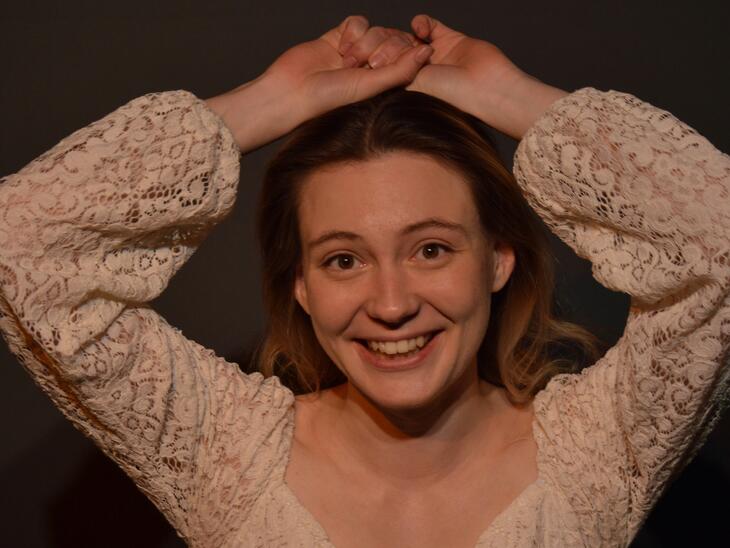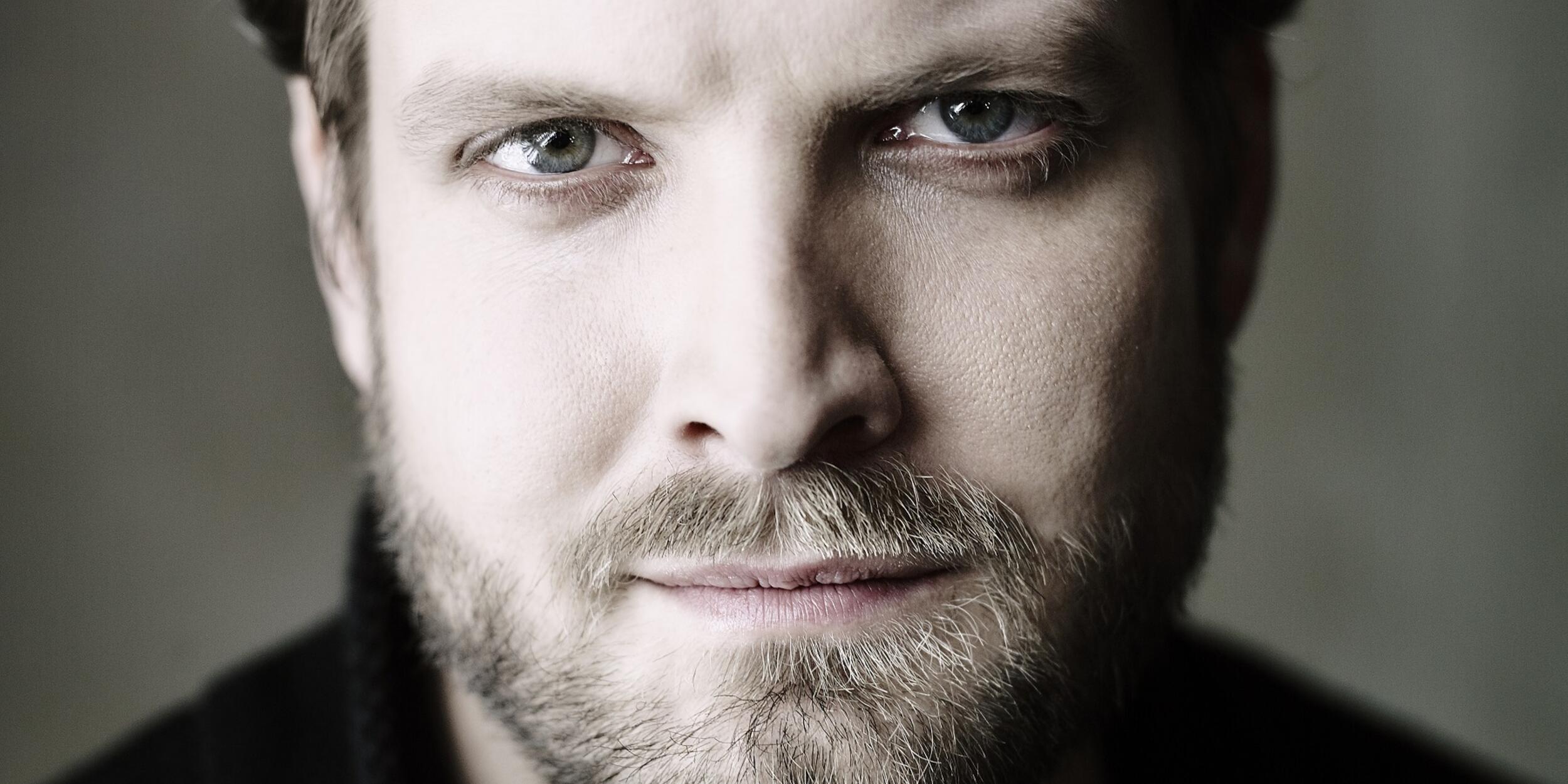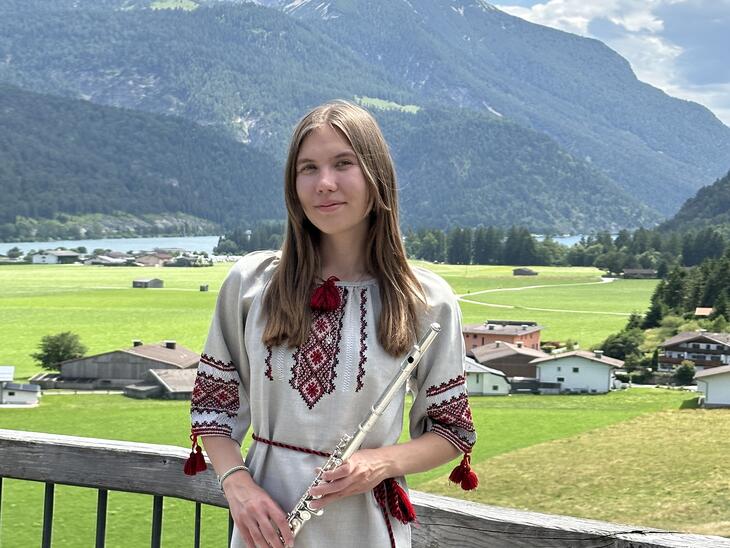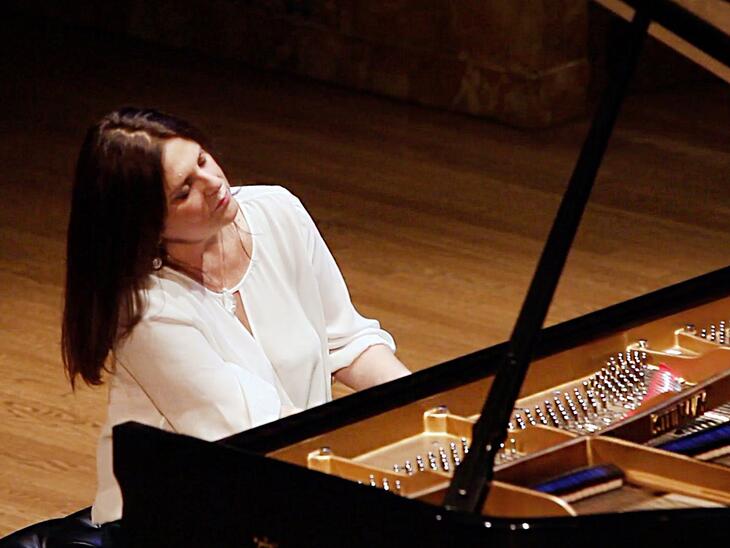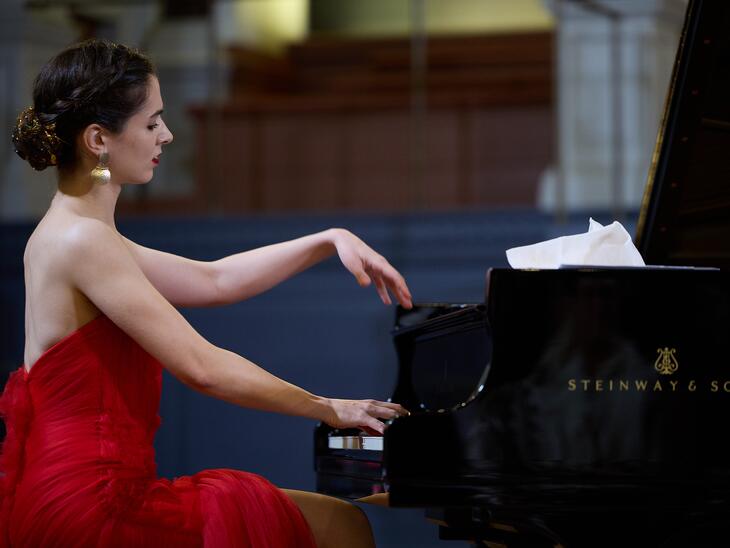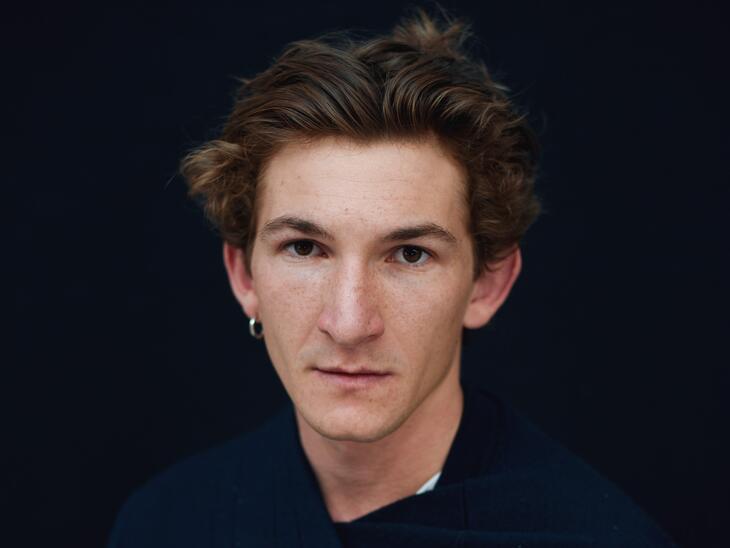You performed in three productions at the Salzburg Festival this summer. How did it feel to be a "Festival artist"?
When you study at the Mozarteum University in Salzburg, it's naturally a big dream to move to the other side of the Salzach one day. After the Young Singers Project 2012, last year I was invited for the first time by the Salzburg Festival to take on the role of the Fifth Jew in the Strauss opera "Salome." That obviously pleased them, and this year I was allowed to participate in George Enescu's "Œdipe," in the revival of "Salome," and at short notice also in Mozart's "Idomeneo."
Was this short notice stressful?
Well, I found out about an hour before the performance that I could sing, and I received the sheet music ten minutes beforehand. Of course there's stress involved. But the adrenaline is high at such a moment and it was very nice. Above all, it was great to get to know musical director Teodor Currentzis in this way.
You have been a member of the ensemble at the Stuttgart State Opera since the 2015/16 season. Your first impressions?
I was fortunate in Stuttgart in that the singers are continuously built up. I started with relatively manageable roles and was approached for a first leading role after the premiere season with "Figaro." You can learn new roles at a large theater like Stuttgart and have perfect working conditions, a wonderful orchestra and a great choir. Nevertheless, as an ensemble singer you are protected and can also try things out.
And what was the path there like?
After graduating from the Mozarteum, I first went to the Zurich Opera Studio, then moved to the Stadttheater Klagenfurt am Wörthersee for two wonderful years. There, too, I was lucky enough not to be "sold out" as a young singer. Often, up-and-coming singers have to master big roles that they are not yet up to, but in Klagefurt I had enough time to develop in peace. You have to get to know yourself in the first few years, in order to realize where your voice hangs out, what your voice can do, and in what repertoire you feel comfortable. Of course, you want to work as much as possible from the beginning and be universally applicable, but you also have to know your strengths - and those can often only be found out on stage.
Did you plan and organize your career yourself, or do you need an agency?
I took part in several auditions while I was still a student and traveled halfway across the country to northern Germany without things working out right away. That can be a pretty frustrating time and you ask yourself: is this really the right thing I'm doing? But fortunately, a small agency has already heard me in the university productions at the Mozarteum. Usually the way it works is that an agent proposes you to ten, twenty houses and you get invited by some of them to audition. Without anyone in the background, it's incredibly difficult to get into the large and small theaters - they have hundreds of blind applications on the table.
What specific advice would you give to young graduates?
I think the best way to get started these days is to join an opera studio at a good theater. There you have the opportunity to audition for agencies, get to know conductors and build up a network. You also have to have the courage to introduce yourself to as many people as possible, to write to people and approach them. What could be worse than not getting a response? Conversely, an invitation to an audition is already the first step. And often, after five or six years, someone does remember you.
In your home country of Germany, there is even support from a public agency, the ZAV Artist Placement Office of the Federal Employment Agency…
Yes, the ZAV helped me a lot. At that time, they also came regularly to audition at the Mozarteum University and got me my first engagement in Klagenfurt. The advantage is that you don't have to pay any agency commissions. That's essential, because the fees are low at the beginning.
How did you actually prepare for such auditions?
For the audition, you should have a fixed repertoire of common arias, no exotic and new arias. You know you can do more, but you also have to establish comparability. The important thing is to feel comfortable in the roles.
How fit did the Mozarteum studies make you feel for the "job market"?
My teachers Horiana Brănișteanu and Wolfgang Holzmair prepared me well, taught me inner strength and how to deal with criticism. For me it was a very good time at the Mozarteum University. You could work with great pianists and do real orchestra rehearsals. It was also very helpful to experience the stress of an opera production. I benefited from that in the opera studio in Zurich - 70 evenings with small parts and chronically too little time to rehearse. It already gave me a starting advantage over others.
And in which area could you have done a bit more during your studies?
One should always have the view "outside" in the back of one's mind. I'm the last person who would say that training should be geared to the market, because at university we first have to concentrate on the technology and on the personal profile. Only then can you market yourself. But it would be helpful to do a little more in the direction of contacts and agencies. That way, you could make the first step a little easier.
As a singer, how have you experienced the job market so far?
The German-speaking market is one of the most interesting for singers worldwide. That's because we still have the large ensembles. But it's also an incredibly tight market. You're not only competing with former fellow students, but also with incredibly well-trained colleagues from all over the world who are auditioning for the same position: from the U.S., from Russia and all of Eastern Europe, from China, Korea and Japan - everyone is here and wants to get into this small market. We have a few hundred stages in Germany, but compared to the supply of singers, it's still very small. As a bass, I'm still lucky in that I'm not exposed to quite the same competition as a soprano or a lyric baritone. There are ten times as many who apply for a position.
Still, what's great about your profession?
First, it was the total love of music. Coming from the piano, growing up I was able to convey everything through music. What's also wonderful, of course, is the encouragement you get from others. As a young person, you realize that you can do something that others can't do. You realize the talent. But when you start studying at university, it quickly becomes clear that it's not just talent that gets you ahead. You also have to focus the great joy and learn things that may not be so much fun at the moment - just like in any profession.
